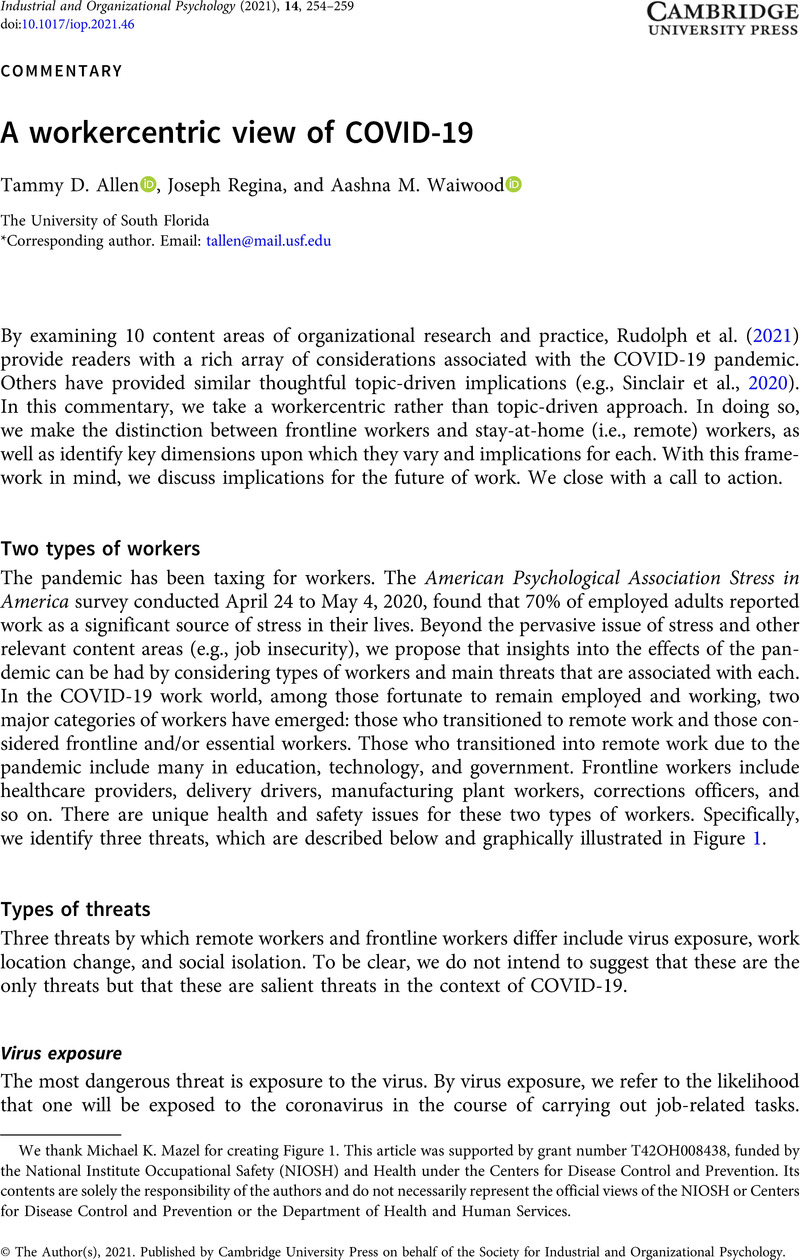Crossref Citations
This article has been cited by the following publications. This list is generated based on data provided by Crossref.
Toscano, Ferdinando
and
Zappalà, Salvatore
2021.
Overall Job Performance, Remote Work Engagement, Living With Children, and Remote Work Productivity During the COVID-19 Pandemic.
European Journal of Psychology Open,
Vol. 80,
Issue. 3,
p.
133.
Urbanaviciute, Ieva
Gander, Fabian
and
Massoudi, Koorosh
2023.
<p>Working Life During the Pandemic: Experienced Changes and their Implications for Occupational Well-being among Employees in Switzerland</p>.
Swiss Psychology Open,
Vol. 3,
Issue. 1,
p.
4.



